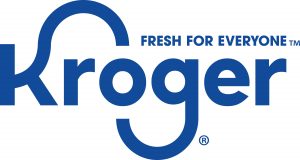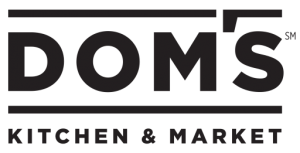Rob Walton to Retire From Walmart Board; Chipotle’s Niccol Nominated
 Rob Walton will retire from the Walmart board of directors at the conclusion of his current term on June 5. Walton joined Walmart in 1969 and before that worked alongside his father, Sam, in his 5&10 store. He served more than 40 years on the Walmart Board and helped shape some of the most important moments in Walmart history.
Rob Walton will retire from the Walmart board of directors at the conclusion of his current term on June 5. Walton joined Walmart in 1969 and before that worked alongside his father, Sam, in his 5&10 store. He served more than 40 years on the Walmart Board and helped shape some of the most important moments in Walmart history.
“Walmart is the world’s leading omni-channel retailer,” said Greg Penner, chairman. “That’s a credit to our team today and to those who, over decades, helped to build and shape our company. One of those incredible leaders is Rob Walton, my father-in-law, who recently shared his decision not to seek re-election to our board of Ddrectors.
“His leadership has been critical as we’ve grown our business over so many years. There’s no doubt Sam would be very proud. On behalf of our associates and the board, I’d like to thank him for his unparalleled and amazing service.”
Walton served as Walmart’s chairman of the board of directors from 1992 to 2015.
Walton joined the company in 1969. Prior to becoming chairman, he held a variety of positions with Walmart, including senior vice president, corporate secretary, general counsel and vice chairman. Before joining Walmart, Walton was a partner with the law firm of Conner & Winters in Tulsa, Okla.
He is involved with a number of nonprofit and educational organizations, including Conservation International, where he serves as chairman of the executive committee, and the College of Wooster, where he is an emeritus life trustee.
Brian Niccol, chairman and CEO of Chipotle Mexican Grill, Inc., has been nominated to replace Walton on the board.
Prior to joining Chipotle in 2018, Niccol served as CEO of Yum! Brands’ Taco Bell Division, where he was responsible for the highly successful turnaround of the business. He served as Taco Bell CEO from January 2015 and president from 2013 to 2014. Under his leadership, he successfully repositioned Taco Bell as a lifestyle brand and successfully launched numerous product initiatives, including the new breakfast daypart, the fastest growing daypart in the industry. He transformed Taco Bell into a social media leader and revolutionized its digital approach through mobile ordering and payment across their 7,000 restaurants. He also created a people-centric innovation culture that has been recognized throughout the industry.
Prior to Taco Bell, Niccol held leadership roles at Pizza Hut, including vice president of strategy, chief marketing officer, and general manager. He led the brand strategy and positioning that achieved record transactions and market share. Additionally, his innovation in digital with on-line and mobile app ordering was industry leading during his time in the business.
Niccol began his career at Procter & Gamble where he spent 10 years in various brand management positions. He holds an undergraduate degree from Miami University (OH) and an MBA from The University of Chicago Booth School of Business. Niccol serves on the board of governors for the Boys & Girls Club of America and on the board of directors of Harley-Davidson, Inc.
For more news of interest to the grocery industry, subscribe to Gourmet News.
Kroger, Albertsons Amend C&S Agreement in Proposed Merger
 The Kroger Co. and Albertsons Companies Inc. have amended their definitive agreement with C&S Wholesale Grocers, LLC for the sale of assets in connection with their proposed merger previously announced on Oct. 14, 2022. This amended package modifies and builds on the initial divestiture package that was announced on Sept. 8, 2023.
The Kroger Co. and Albertsons Companies Inc. have amended their definitive agreement with C&S Wholesale Grocers, LLC for the sale of assets in connection with their proposed merger previously announced on Oct. 14, 2022. This amended package modifies and builds on the initial divestiture package that was announced on Sept. 8, 2023.
The amended divestiture package responds to concerns raised by federal and state antitrust regulators regarding the original agreement. The enhanced divestiture package includes a modified and expanded store set and additional non-store assets to further enable C&S to operate competitively following the completion of the proposed merger. The companies believe the amended divestiture package will bolster their position in regulatory challenges to the proposed merger, including pending court proceedings.
 “We have reached an agreement with C&S for an updated divestiture package that maintains Kroger’s commitments to customers, associates and communities, addresses concerns raised by regulators, and will further ensure that C&S can successfully operate the divested stores as they are operated today,” said Rodney McMullen, Kroger’s chairman and CEO. “Importantly, the updated divestiture plan continues to ensure no stores will close as a result of the merger and that all frontline associates will remain employed, all existing collective bargaining agreements will continue, and associates will continue to receive industry-leading health care and pension benefits alongside bargained-for wages. Our proposed merger with Albertsons will bring lower prices and more choices to more customers and secure the long-term future of unionized grocery jobs.”
“We have reached an agreement with C&S for an updated divestiture package that maintains Kroger’s commitments to customers, associates and communities, addresses concerns raised by regulators, and will further ensure that C&S can successfully operate the divested stores as they are operated today,” said Rodney McMullen, Kroger’s chairman and CEO. “Importantly, the updated divestiture plan continues to ensure no stores will close as a result of the merger and that all frontline associates will remain employed, all existing collective bargaining agreements will continue, and associates will continue to receive industry-leading health care and pension benefits alongside bargained-for wages. Our proposed merger with Albertsons will bring lower prices and more choices to more customers and secure the long-term future of unionized grocery jobs.”
The proposed merger will create meaningful and measurable benefits for America’s consumers, Kroger and Albertsons Cos. associates, and communities that both Kroger and Albertsons Cos. serve by expanding access to fresh, affordable food and establishing a more compelling alternative to large, non-union retailers. This updated divestiture plan marks another next step toward the completion of the merger by adding a well-capitalized competitor into new geographies.
“We are confident this expanded divestiture package will provide the stores, supporting assets and expert operators needed to ensure these stores continue to successfully serve their communities for many generations to come,” said Eric Winn, CEO of C&S. “C&S is a leader in the grocery industry, and we are excited for this expansion of our current retail business, which is a key part of our long-term growth strategy. We look forward to welcoming storied banners, quality private label brands, and a team of experienced retail associates into the C&S family. This amended agreement enables C&S’s heritage of selection, value and customer service to continue our legacy of braggingly happy customers.”
Transaction Details
The updated divestiture package increases the total store count by 166 to include 579 stores that will be sold to, and continue operating as they do today by the new owner, C&S.
It maintains the sale to C&S of the QFC, Mariano’s and Carrs banner names. Under the amended agreement, Kroger will also sell the Haggen banner to C&S. Stores currently under these banners that are retained by Kroger will be re-bannered into one of the retained Kroger or Albertsons Cos. banners following the close of the transaction with C&S.
Under the amended agreement, C&S will license the Albertsons banner in California and Wyoming and the Safeway banner in Arizona and Colorado. In these states, Kroger will re-banner the retained Albertsons and Safeway bannered stores following the closing of the merger. Kroger will maintain the Albertsons and Safeway banners in the remaining states.
The number of stores contained in the divestiture plan by geography is as follows:
- WA: 124 Albertsons Cos. and Kroger stores
- CA: 63 Albertsons Cos. stores
- CO: 91 Albertsons Cos. stores
- OR: 62 Albertsons Cos. and Kroger stores
- TX/LA: 30 Albertsons Cos. stores
- AZ: 101 Albertsons Cos. stores
- NV: 16 Albertsons Cos. stores
- IL: 35 Albertsons Cos. and Kroger stores
- AK: 18 Albertsons Cos. stores
- ID: 10 Albertsons Cos. stores
- NM: 9 Albertsons Cos. stores
- MT/UT/WY: 11 Albertsons Cos. stores
- DC/MD/VA/DE: 9 Harris Teeter stores
The above stores (regardless of banner) will be sold by Kroger to C&S following the closing of the merger with Albertsons Cos.
In connection with the additional stores being conveyed to C&S, the updated divestiture package includes increased distribution capacity through a combination of different and larger facilities as well as expanded transition services agreements to support C&S and the addition of one dairy facility.
The amended divestiture package also expands the corporate and office infrastructure provided to C&S given the increased store set to ensure C&S can continue to operate the divested stores competitively and cohesively. All fuel centers and pharmacies associated with the divested stores will remain with the stores and continue to operate.
The amended agreement maintains the divestiture of private label brands Debi Lilly Design, Primo Taglio, Open Nature, ReadyMeals and Waterfront Bistro to C&S. The revised agreement also provides C&S with access to the Signature and O Organics private label brands.
The updated plan will:
- Extend a competitor to new geographies through the sale of stores to a well-capitalized buyer that is led by seasoned operators with a strong balance sheet and a sound business plan;
- Ensure that no stores will close as a result of the merger;
- Maintain all current collective bargaining agreements, which include industry-leading healthcare and pension benefits, bargained-for wages, and ensuring frontline associates remain employed; and
- Commit to invest in associates and stores for the long term.
Subject to fulfillment of customary closing conditions, including Federal Trade Commission and/or other governmental clearance, and the completion of the Kroger-Albertsons merger, C&S will pay Kroger an all-cash consideration of approximately $2.9 billion, including customary adjustments.
Merger creates meaningful benefits for customers, associates and communities
The proposed merger with Albertsons Cos. will produce meaningful and measurable benefits for customers, associates and communities across the country. The combined company committed that no stores, distribution centers or manufacturing facilities will close as a result of the merger.
Customers will benefit from lower prices and more choices following the merger close. Kroger committed to investing $500 million to begin lowering prices day one post-close, and an additional $1.3 billion to improve Albertsons Cos.’ stores.
This commitment builds on Kroger’s long track record of reducing prices every year, with $5 billion invested to lower prices since 2003. Customers will also have access to more favorite items from their own communities, as Kroger committed to increasing the number of local products in its stores by 10 percent post-close. This merger creates more opportunities for families to access the fresh, affordable foods they love.
As a combined company, Kroger committed to investing $1 billion to raise wages and comprehensive benefits. This builds on the incremental $2.4 billion Kroger invested to improve wages and comprehensive benefits since 2018. To provide the best holistic support for each associate, the company will also extend continuing education and financial literacy benefits to all associates following the merger close. As union membership continues to decline nationwide, especially in the grocery industry, this merger is the best way to secure union jobs. Kroger has added more than 100,000 good-paying union jobs since 2012.
The proposed merger will allow the combined company to invest more deeply to end hunger in communities across America. In 2023, Kroger committed to donating 10 billion meals to families across the United States by 2030. Bringing these companies together provides one more step toward achieving communities that are free from hunger and food waste.
Kroger and Albertsons Cos. remain committed to defending the merger in court and unlocking the many benefits it offers.
Read more about the combined company’s commitment to customers, associates and communities at www.krogeralbertsons.com
For more news of interest to the grocery industry, subscribe to Gourmet News.
Dom’s, Foxtrot Locations Closing April 23
 All Dom’s Kitchen & Market and Foxtrot locations are closing, according to a post on the Dom’s website:
All Dom’s Kitchen & Market and Foxtrot locations are closing, according to a post on the Dom’s website:
Dear Dom’s Kitchen & Market and Foxtrot Customers,
It is with a heavy heart that we must inform you of a difficult decision we have had to make. After much consideration and evaluation, we regret to announce that Foxtrot and Dom’s Kitchen & Market will be closing their doors starting on April 23. The closure affects 2 Dom’s stores and 33 Foxtrots across Chicago, Austin, Dallas, DC areas. We explored many avenues to continue the business but found no viable option despite good faith and exhaustive efforts.
This decision has not been made lightly, and we understand the impact it will have on you, our loyal customers, as well as our dedicated team members. We want to express our sincerest gratitude for your support and patronage throughout the years. It has been our highest honor to elevate the everyday and create a remarkable shopping experience for people who love food as much as we do. It has been a privilege serving you and being a part of your everyday lives.
We understand that this news may come as a shock, and we apologize for any inconvenience it may cause. We genuinely appreciate your understanding during this challenging time.
We would like to take this opportunity to thank each and every one of you for your loyalty and trust in Dom’s and Foxtrot. It has been an honor to serve you, and we will cherish the memories we have created together. We would also like to thank our team members who have committed themselves over the years to providing a unique selection of quality foods and creating an outstanding in-store customer experience. Lastly, we would like to thank our many partners, without whom we would not have been able to build such a strong brand.
You can access FAQ’s below.
Once again, thank you for your support, and we wish you all the best in the future.
Important dates:
April 23, 2024 – Delivery capabilities are no longer available.
April 23, 2024 – Store operations are no longer available.
April 23, 2024 – Store credits are no longer available.
April 23, 2024 – All customer-facing operations are disabled.
When will the Dom’s/Foxtrot stores close?
Operations will end on April 23, 2024.
When will the Dom’s Go/Foxtrot Apps close?
Operations will end on April 23, 2024.
Will consumers be able to use Foxtrot / Dom’s credits?
All Dom’s/Foxtrot account credit and member perks will expire on April 23, 2024
For more news of interest to the grocery industry, subscribe to Gourmet News.






